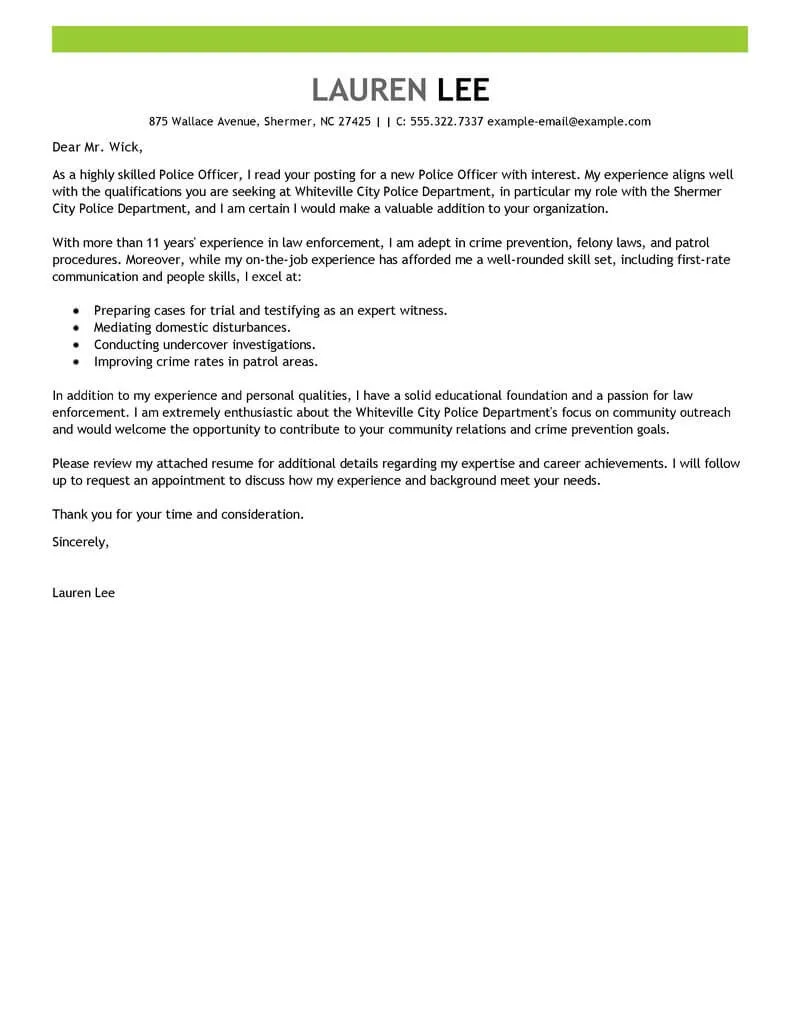Why Your Law Enforcement Cover Letter Matters
In the competitive world of law enforcement, a well-crafted cover letter is your initial handshake with potential employers. It serves as a crucial first impression, providing an opportunity to showcase your unique qualifications and passion for the field. Unlike a resume, which offers a factual overview of your experience and skills, a cover letter allows you to express your personality, articulate your career goals, and explain why you’re the ideal candidate for the position. A compelling cover letter grabs the reader’s attention and encourages them to delve deeper into your qualifications, ultimately increasing your chances of securing an interview and, eventually, a job offer. Moreover, it demonstrates your communication skills and attention to detail, essential qualities for any law enforcement professional. Ignoring or underestimating the importance of a cover letter can be a significant misstep in your job application process.
Highlighting Relevant Skills and Experience
Your cover letter should function as a targeted sales pitch, specifically highlighting the skills and experiences most relevant to the law enforcement role you’re seeking. This involves a careful analysis of the job description and a strategic presentation of your qualifications. Begin by identifying the key skills and qualities the employer values, such as leadership, communication, problem-solving, and ethical conduct. Then, provide concrete examples from your past experiences that demonstrate your proficiency in these areas. This section shouldn’t just list your skills; it should illustrate how you’ve applied them in real-world situations and achieved positive outcomes. Remember to tailor your letter to each specific job, emphasizing the aspects of your background that align most closely with the requirements of the position. A generic cover letter is likely to be overlooked, while a customized one shows initiative and a genuine interest in the role.
Identifying Key Law Enforcement Skills
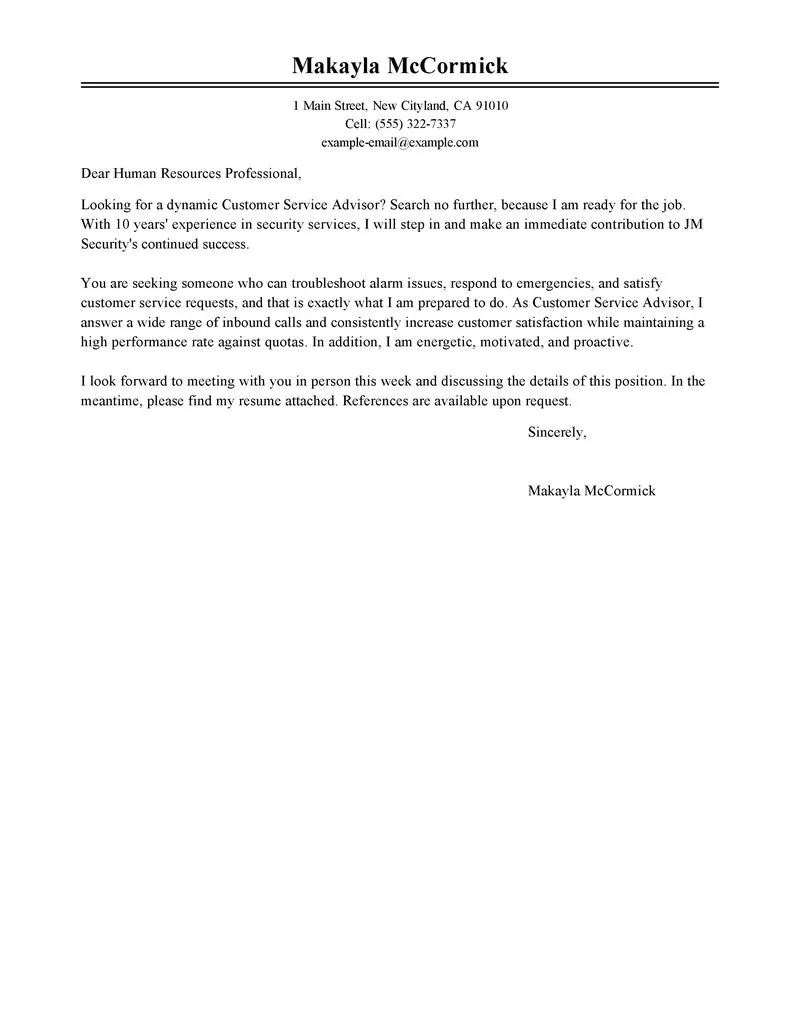
Law enforcement demands a unique blend of skills, extending beyond mere physical capabilities. In your cover letter, emphasize skills like critical thinking, the ability to make sound judgments under pressure, and a strong understanding of legal procedures and ethical standards. Highlight your communication skills, both written and verbal, as effective communication is crucial for interacting with the public, writing reports, and collaborating with colleagues. Showcase your problem-solving abilities by describing instances where you successfully resolved complex issues or made decisive choices. Include interpersonal skills, like empathy and the ability to remain calm in stressful situations. Also, demonstrate your commitment to integrity and your adherence to the highest ethical standards, as these are paramount in law enforcement. By explicitly mentioning and providing examples of these key skills, you demonstrate your readiness to excel in the profession.
Showcasing Relevant Experience
Your experience is the foundation of your application, so showcase it effectively in your cover letter. Whether you have prior law enforcement experience, military service, or other relevant roles, provide details that demonstrate your suitability for the position. If you’ve worked in a similar capacity, outline your responsibilities, achievements, and any specific skills you gained. Even if you lack direct law enforcement experience, you can still highlight transferable skills from other fields. For instance, leadership roles in a volunteer organization, experience in conflict resolution, or any work involving public interaction can be valuable. Always focus on how your experience aligns with the requirements of the job and the values of the law enforcement agency you’re applying to. Use specific examples and quantify your achievements whenever possible to provide a clear picture of your capabilities.
Structuring Your Law Enforcement Cover Letter
A well-structured cover letter is easy to read and conveys your message effectively. Divide your letter into clear sections to guide the reader. Start with a professional header, including your contact information and the date. Follow this with a personalized greeting, addressing the hiring manager or the appropriate authority by name if possible. In the opening paragraph, state the position you’re applying for and how you learned about it. The body of your letter should then elaborate on your qualifications, skills, and experiences, providing specific examples to support your claims. Finally, conclude with a strong closing, reiterating your interest in the position, expressing your availability for an interview, and including a call to action, such as an expression of gratitude for the opportunity. Each section of your cover letter serves a specific purpose, and together, they create a compelling narrative of your suitability for the role.
Header and Contact Information
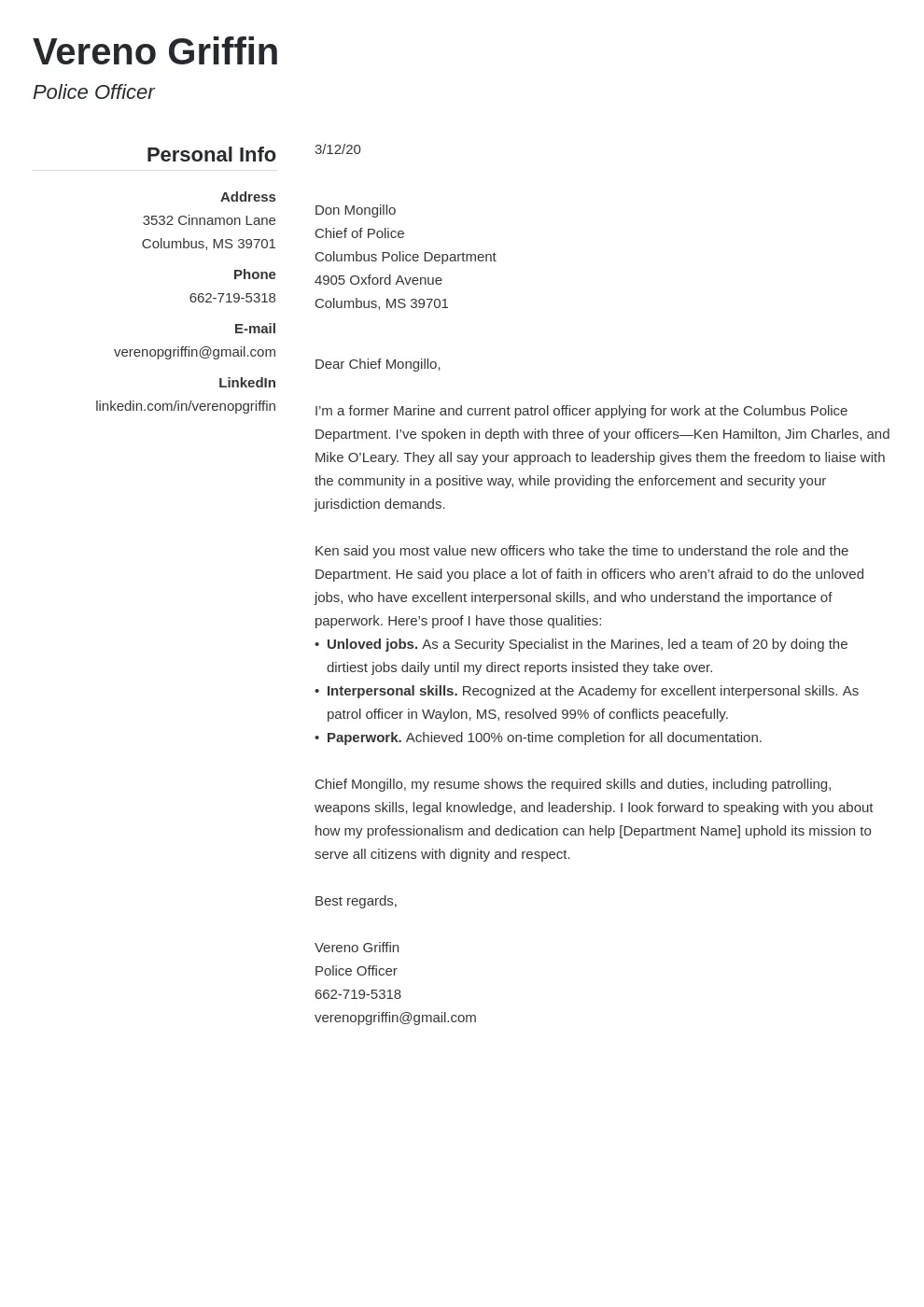
Begin your cover letter with a professional header that includes your full name, address, phone number, and email address. It’s essential to present this information clearly and accurately. Use a font that is easy to read and maintains a professional appearance. Immediately below your contact information, include the date of the letter. Then, address the hiring manager or the appropriate contact person. If you cannot find a specific name, you can use a formal greeting such as “Dear Hiring Manager” or “Dear [Department Name] Recruitment Team.” Ensure that your contact information is up-to-date and that your email address projects professionalism. Double-check the formatting and accuracy of the header to ensure a polished first impression. It sets the stage for the rest of your application and demonstrates attention to detail.
Opening and Introduction
The opening paragraph of your cover letter is crucial as it sets the tone and captures the reader’s attention. Start by clearly stating the position you’re applying for and where you found the job posting. This helps the hiring manager quickly understand the purpose of your letter. Following this, provide a brief and compelling statement about your interest in the position and the law enforcement agency. Briefly introduce yourself and highlight your most relevant skills or experiences that make you an ideal candidate. This introduction should be concise and to the point, creating immediate interest in your qualifications. Demonstrate your knowledge of the department and your enthusiasm for the role. The opening paragraph should serve as a strong foundation for the rest of your letter, providing a clear overview of your qualifications and your genuine interest in the opportunity. This initial impact is important in a competitive job market.
Body Paragraphs Content
The body paragraphs are where you elaborate on your qualifications and demonstrate why you’re a strong candidate. Structure these paragraphs to highlight your key skills, experiences, and achievements relevant to the job description. Use specific examples to illustrate your capabilities, avoiding generic statements. For each point, explain how your skills align with the requirements of the role, and quantify your achievements whenever possible. Use action verbs to make your statements more dynamic and impactful. Keep the language concise and clear, ensuring your message is easy to understand. Connect your past experiences to the needs of the law enforcement agency, demonstrating how your skills and knowledge will benefit the department. Each body paragraph should build upon the previous one, creating a compelling narrative of your qualifications and your suitability for the position. This section should showcase your personality, skills, and achievements.
Closing and Call to Action
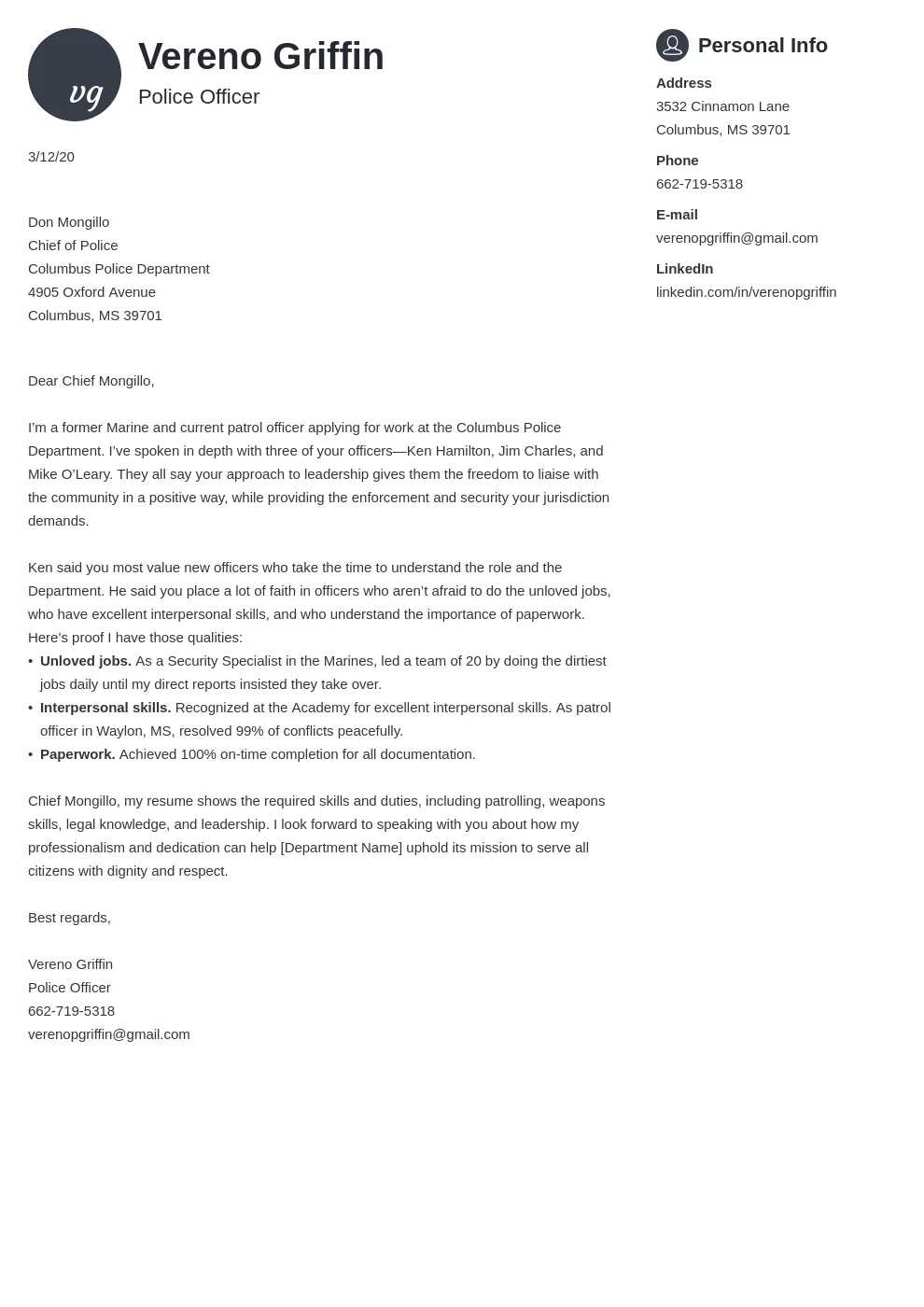
The closing paragraph provides the opportunity to summarize your interest and encourage further action. Reiterate your enthusiasm for the position and your commitment to the law enforcement agency. Express your appreciation for the opportunity to be considered. State your availability for an interview and your willingness to discuss your qualifications further. Include a clear call to action, such as, “I look forward to hearing from you soon” or “Thank you for considering my application.” Maintain a professional and confident tone throughout the closing. Proofread the entire letter to ensure there are no errors before signing off with a formal closing, such as “Sincerely” or “Respectfully,” followed by your typed name. This final touch leaves a lasting positive impression and encourages the hiring manager to take the next step.
Quantifying Achievements and Results
Whenever possible, quantify your accomplishments to make your cover letter more impactful and demonstrate the value you bring to the table. Instead of saying “Improved team efficiency,” say “Improved team efficiency by 15% through the implementation of new protocols.” Use numbers and specific data to provide concrete evidence of your achievements. For example, if you have experience in crime prevention, you could state, “Reduced neighborhood crime rates by 10% through proactive patrols and community engagement.” Highlighting specific results underscores your capabilities and gives the hiring manager a clear understanding of your potential contributions. By using metrics and data, you show that you can make a real difference in a law enforcement environment and that you are dedicated to achieving positive outcomes. This is critical in demonstrating your abilities.
Using Action Verbs for Impact
Using strong action verbs is a critical aspect of crafting a compelling cover letter. Action verbs instantly make your accomplishments more dynamic and engaging. Instead of saying, “Responsible for managing investigations,” say, “Managed and successfully concluded over 50 investigations.” Examples of effective action verbs include “led,” “implemented,” “developed,” “achieved,” “resolved,” “coordinated,” “trained,” and “analyzed.” These verbs demonstrate what you did, not just what you were responsible for. Vary your verbs to keep your writing interesting and showcase the breadth of your skills. By starting your sentences with impactful action verbs, you bring your experiences to life and show the hiring manager what you can do. This technique helps you stand out from other candidates and emphasizes your proactive approach.
Proofreading and Editing Your Letter
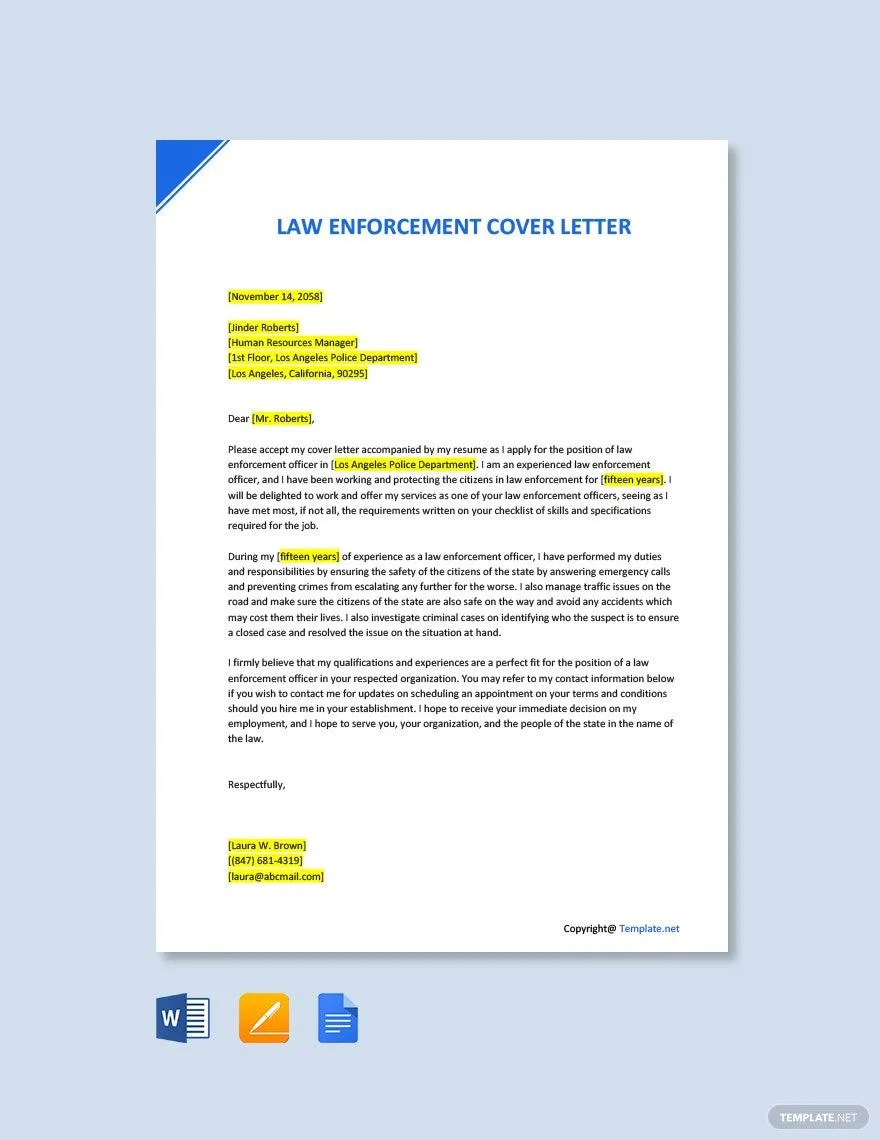
Proofreading and editing are essential steps in ensuring your cover letter is polished and professional. Before submitting your application, carefully review your letter for any grammatical errors, typos, and inconsistencies. Read your letter multiple times, and consider asking a friend or family member to review it as well. They may catch errors you missed. Pay close attention to the formatting and layout of the document. Ensure the font is consistent, the spacing is correct, and the overall presentation is visually appealing. Correct any awkward phrasing, and make sure your sentences flow smoothly. The goal is to present a flawless, well-crafted letter that reflects your attention to detail and professionalism. A cover letter filled with errors can undermine your application and create a negative impression. Always proofread carefully before submitting to make a positive impact.
